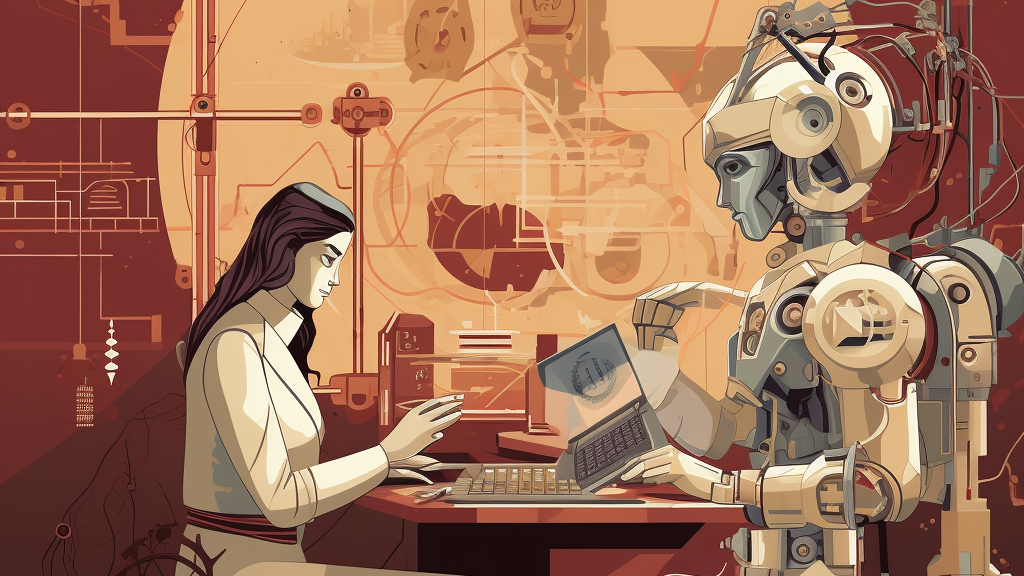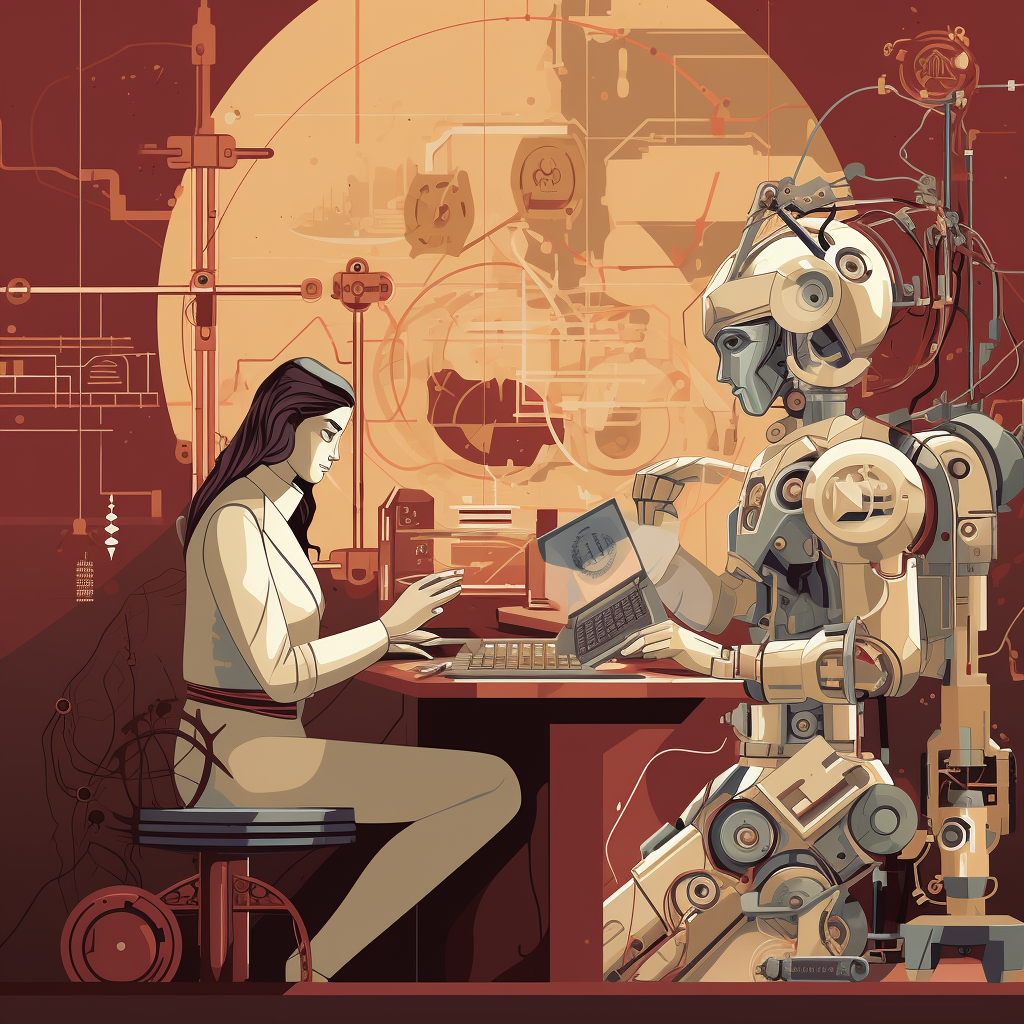In recent years, the advancement of Artificial Intelligence (AI) has generated an intense debate about its impact on the labor market. While some envision a future of efficiency and expanded opportunity, others fear an era of obsolescence and job displacement. In this article, we explore diverse perspectives, drawing on recent research and opinions from leading strategic consultancies, to offer a balanced view on this crucial topic.
AI as a complement, not a substitute
The study carried out by MIT and IBM provides a revealing insight into the current role of Artificial Intelligence (AI) in the workplace. Often, the discussion of AI is tainted by concerns that it could completely supplant the Human Labor . However, this study puts things into perspective: although AI shows remarkable efficiency in certain tasks, the idea that it can fully replace human beings in their work is, for the moment, economically unfeasible.
The research highlights that only 23% of work tasks are likely to be automated with current technology, and these tasks are mostly linked to processes that require computer vision. This percentage, far from posing a threat, underscores the complementary nature of AI. Rather than seeing AI as a substitute, we should understand it as a tool that empowers human capabilities, freeing us from operational burdens and allowing us to focus on activities that require critical thinking, creativity, and decision-making—capabilities that are inherently human and, so far, difficult to replicate in their entirety by machines.

This complementary approach implies a synergy between humans and technology. AI can handle repetitive tasks or tasks that require processing large volumes of data quickly and accurately. Meanwhile, professionals can engage in higher value-added tasks that require human judgment, such as strategic decision-making, innovation, complex problem-solving, and personal interaction.
In addition, this collaboration between AI and humans can lead to an improvement in the quality of work, reducing errors associated with monotonous tasks and allowing workers to spend more time honing their skills and expanding their creativity and innovation. It can also lead to a more satisfying work environment, where workers feel more valued and motivated by contributing to more strategic and less mechanical aspects of their work.
Changes in the way work is done
At Proportione, we lean toward innovation and collaboration, rather than substitution and obsolescence. In this context, the Generative AI It is presented not as a threat, but as a powerful tool that can enhance human capabilities and transform the way we work, although it will depend heavily on the countries leading AI .
Strategic consultancies predict that generative AI will profoundly alter day-to-day operations across numerous industries. This technology enables the automation of repetitive tasks and the processing of large volumes of data at speeds and with a level of accuracy unattainable by humans. However, beyond automating routine tasks, generative AI has the potential to provide valuable insights, facilitate decision-making, and spur creativity in more complex processes. This leads to a change in the nature of the tasks assigned to human talent, orienting them towards activities that require critical judgment, creativity and emotional intelligence.
Transforming talent and skills
With the emergence of generative AI, comes a growing demand for a new set of skills and competencies. Technical skills related to programming and handling AI are essential, but so are soft skills, such as adaptability, critical thinking, and creative problem-solving. Leading organizations are already recognizing the importance of investing in the training and ongoing development of their teams to prepare them for this new work landscape.
Intelligent automation as a complement
The essence of intelligent automation lies in its ability to complement and amplify human skills, not replace them. This synergy between humans and machines translates into greater efficiency, accuracy, and ultimately greater innovation. Generative AI can free employees from monotonous tasks, allowing them to focus on activities that generate greater value and require a human touch, such as personal interaction, strategic decision-making, and innovative thinking.
Proportione's Focus on Effective Collaboration
Proportione understands that AI's true potential lies in its ability to Work collaboratively with people . This perspective places an emphasis on creating a work environment in which humans and advanced technologies, such as generative AI, coexist and complement each other. Proportione advocates for a harmonious integration of technology into the workflow, fostering a space where technological innovation and human wisdom are mutually empowering.
Investing in training and adaptability
The rapid evolution of AI demands an adaptable and constantly learning workforce. A lack of technical skills is a significant obstacle, and investment in training and talent development becomes essential. This approach is not only vital for companies looking to stay competitive, but also for workers looking to ensure their relevance in a changing labor market.
The role of leadership in the age of AI
The successful implementation of AI requires visionary leadership that understands its potential and limitations. Leading organizations will be those that know how to integrate AI into their processes, fostering a culture of innovation and continuous learning. AI is not just a technological tool, but a paradigm shift that requires a profound reevaluation of business strategies and processes.
AI represents an unprecedented opportunity for growth and innovation in the workplace. However, its successful implementation depends on a balanced approach that recognizes both its potentialities and its limitations. At Proportione, we advocate for a perspective that sees AI not as a threat, but as a strategic ally on the path to a more efficient, dynamic, and humane future of work. We invite our readers to explore more about this topic in our previous posts, where we delved into the intersections between technology, talent, and business transformation.
